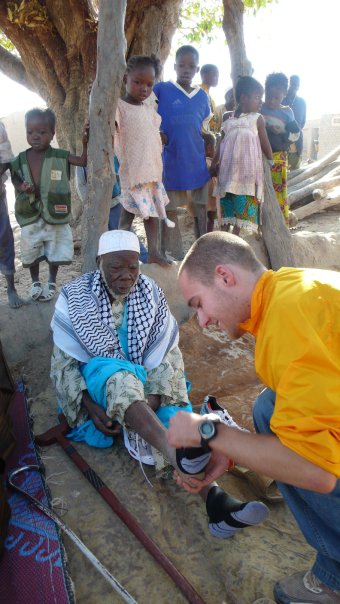New Grads Can Learn From Artisans
Graduation season is upon us and, since once again I was not asked to deliver a commencement address in person, I am offering one here in print.
Among those who will fling their mortarboards skyward in celebration this year is my youngest nephew from Camarillo High School. And so I will address my remarks to him personally with hope others may find wisdom and inspiration as well.
Congratulations, Rhett. Before continuing on your educational expedition and life journey, I want to tell you about the banana knife your cousin brought home from Sri Lanka last year as a gift for me.
The curved eight-inch blade is not burnished smooth except for its sharp edge, yet it is still beautiful for its utility – it can cut a banana bunch from a tree, chop down bamboo stalks, slice open a letter with equal ease. In today’s world, having a wide range of skills will serve you well.
Conversely, its lacquered native hardwood handle is art to behold – and hold. Adding to the sublimity is that your cousin watched the master blacksmith fashion this handiwork in an hour’s time.
He also saw craftswomen weave strands of colorfully dyed palm leaves into wondrous purses of varying patterns. Meanwhile, from earthen clay other artists created pots and bowls that are equally useful and attractive.
These Sri Lankan artisans, it seems to me, serve as an instructive metaphor. Each day we all receive 24 hours like a new chunk of raw clay or a pile of palm fronds or a piece of metal. Our challenge and duty is to use our vision, talents and perseverance to create something meaningful.

Greg Woodburn gave new socks and running shoes as gifts to Sikoro villagers, including the Elder Chief here.
Too, Rhett, I wish to share a story from a trip your cousin took a few years earlier to the tiny village of Sikoro in Mali, Africa. Because his luggage was lost, and because he had neglected to pack anything in his carry-on bag for just such a mishap, he spent two weeks with only the clothes on his back.
Yet instead of calamitous, the lost luggage actually proved to be serendipitous because he got a life lesson in experiencing how his impoverished hosts make do with very few possessions.
The people of Sikoro live in mud-brick huts, sleep on woven mats atop hard dirt floors and pump water from wells. They lack enough fruits and vegetables. Most do not have shoes.
Despite what to us seems a hardscrabble existence, they are extremely happy. They smile constantly, laugh easily, dance freely. Worries about car payments and job promotions do not weigh on their minds. They may not have much materially by our standards, but by theirs they have enough.
Rhett, you would do well to pack some of these values of the Sikoro villagers in your luggage, so to speak, as you travel life’s roads.
Speaking of packing, Rhett, I wish to close with a scene from the book “Repacking Our Bags” by Richard Leider. He was on a backpacking trek in Africa and the group’s Maasai guide, Koyie, traveled with only a spear and a stick for cattle-tending. Leider, on the other hand, was outfitted with a backpack stuffed with “necessities.”
After they made camp the first evening, Leider laid out all his fancy gear. He writes: “I unsnap snaps, unzip zippers, and un-Velcro Velcro. From pockets, pouches, and compartments, I produce all sorts of strange and wonderful items. Eating utensils, cutting devices, digging tools. Direction finders, star gazers, map readers. Things to write with, on, and for. Various garments in various sizes for various functions. Medical supplies, remedies, and cures. Little bottles inside little bottles inside little bottles. Waterproof bags for everything. Amazing stuff!
“I look over at Koyie to gauge his reaction,” Leider continues. “He seems amused but he is silent. Finally, after several minutes of just gazing at everything, Koyie turns to me and asks very simply, but with great intensity: ‘Does all this make you happy?’ ”
Pursue happiness, Rhett, but pursue it wisely. As Patagonia founder Yvon Chouinard has sagely said: “The more you know, the less you need.”
*
Woody Woodburn writes a weekly column for The Ventura County Star and can be contacted at WoodyWriter@gmail.com.
Check out my new memoir WOODEN & ME: Life Lessons from My Two-Decade Friendship with the Legendary Coach and Humanitarian to Help “Make Each Day Your Masterpiece”
- Personalized signed copies are available at WoodyWoodburn.com
- Unsigned paperbacks or Kindle ebook can be purchased here at Amazon
